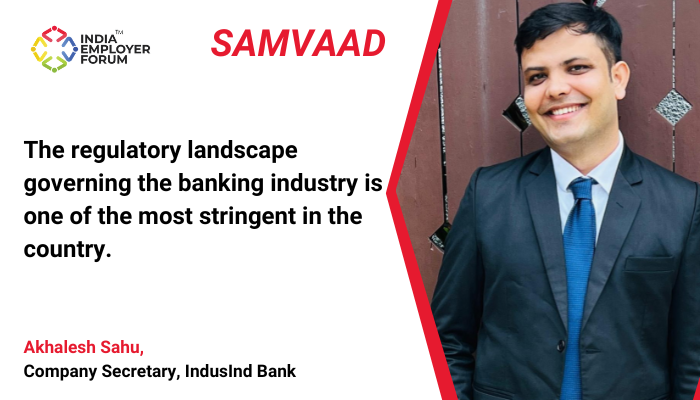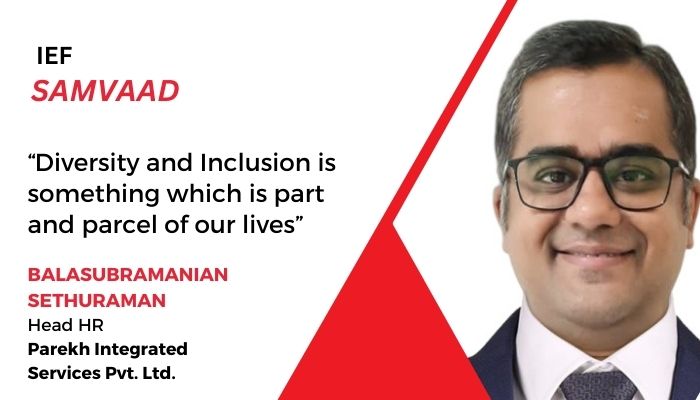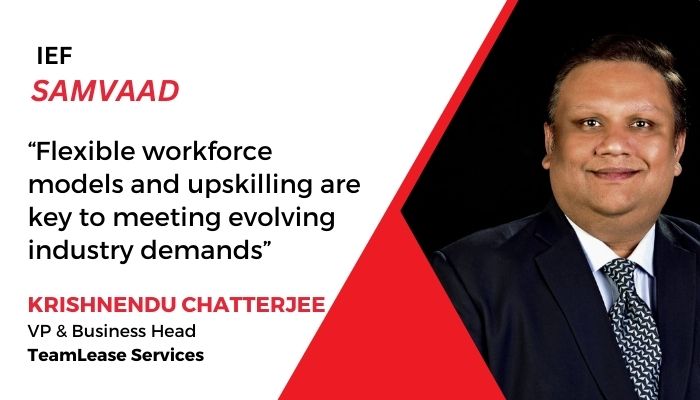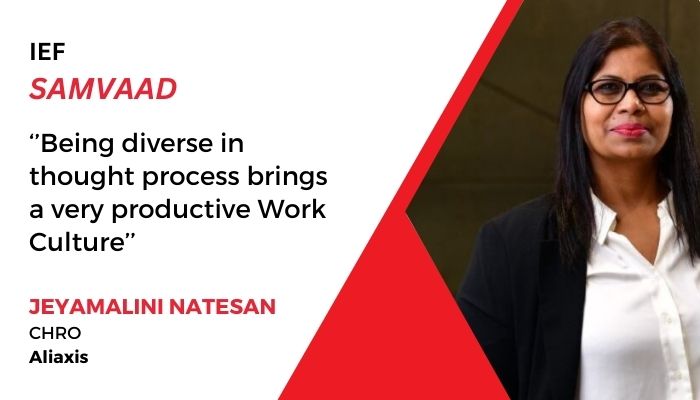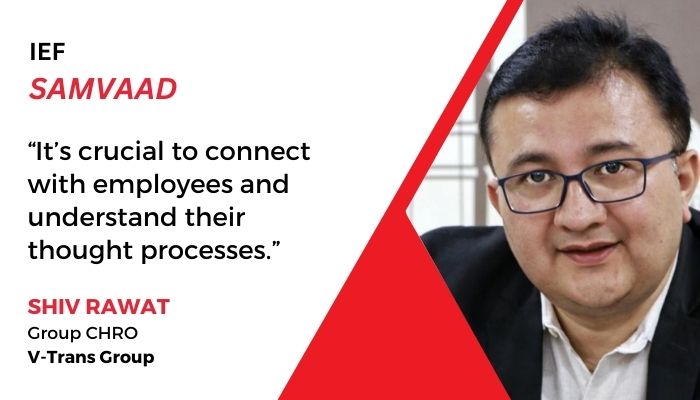Mr. Akhalesh Sahu, Company Secretary, IndusInd Bank speaks to India Employer Forum about the regulatory landscape governing the banking industry, RBI regulations, compliances around corporate governance, fundraising, corporate restructuring, etc.
Q. What does the regulatory ecosystem for the Banking Industry look like in India?
The regulatory landscape governing the banking industry is one of the most stringent in the country. Even when compared to other listed entities, which are regulated by the Ministry of Corporate Affairs (MCA) and the Securities and Exchange Board of India (SEBI), banks face an additional layer of compliance under the purview of the Reserve Bank of India (RBI). Serving as the central regulator of the banking system, the RBI has stringent requirements across all operational aspects of banks. This encompasses compliances around the composition of the board of directors, qualifications of the directors, mandatory committees and meetings, and declarations. This stems from the fact that banks handle large amounts of public money. Consequently, the RBI looks into every business activity and bank’s internal operations.
Q. What are the challenges a company secretary faces in carrying out secretarial functions in the banking sector?
A company secretary (CS) needs to primarily deal with the board governance and board meetings. As per the RBI norms, the board of a banking company is required to consist of persons who have special knowledge or practical experience in respect of accountancy, agriculture and rural economy, banking, co-operation, economics, finance, law and small-scale industry, which leads to diverse deliberations and opinions arising from board meetings. A CS is responsible for ensuring that all opinions, suggestions, deliberations and discussions are accurately captured in the minutes of board meetings. For this, the CS needs to be aware of the banking operations and laws as well. Additionally, the RBI keeps a close eye on the minutes of meetings to check that the critical themes prescribed by the RBI are being discussed in the meetings and whether the Board is deliberating on those themes adequately. Implementation and monitoring of the status of actionables arising from the minutes are equally important since these actionables are being closely monitored and scrutinised by the RBI. Typically a bank holds more than one hundred meetings of the Board and Committees in a year. The sheer number of meetings is a key challenge faced by CS professionals..
Q. What are some complexities that you encounter in preparing compliance filings?
Amidst the multitude of filing and reporting obligations mandated by RBI regulations, the central bank has established distinct formats tailored for compliance. While these standardised templates facilitate filing processes, they necessitate precise information regarding actionable items, implementation strategies, and timelines, among other details.
Similarly, regulatory bodies like MCA and SEBI also prescribe their specific forms and formats. Consequently, it is imperative to establish and maintain comprehensive repositories containing the requisite information for these filings. These repositories must undergo continuous updating and auditing to uphold the accuracy and integrity of the data.
Technology has emerged as a pivotal facilitator in the development of such repositories and dissemination channels, empowering compliance professionals to provide adequate and timely information and reporting to various stakeholders, viz. directors, regulators and shareholders.
Q. What activity accounts for the majority of the time spent in compliance function in secretarial compliances?
While a Company Secretary is required to take care of all regulatory compliances around corporate governance, fundraising, corporate restructuring, board meetings, shareholder’s meetings, insider trading, employee stock options mechanism and investor grievances, however, 70% of a CS function’s time is spent on board governance and meetings of board/its committees. As a regulator, RBI has mandated the formation of some committees in addition to the committees prescribed by MCA and SEBI. As such, the professional is occupied mostly by the compliance processes and internal workflows around such meetings.
Q. How has technology transformed secretarial compliances?
The COVID-19 pandemic solidified the need for technology in secretarial functions. It allowed meetings to go paperless, with a single platform now used to disseminate information related to meetings. Compliance management tools have become increasingly important. In a banking institution, there are thousands of branches and tens to hundreds of offices. The sheer number of locations, along with compliance obligations for each one of them, create an extremely complex situation wherein it is difficult to exercise control. Digital tools and dashboards allow compliance teams to monitor and track compliance at all levels and locations.
Q. How crucial are LODR regulations? Where do the complexities lie?
SEBI’s expectations from listed entities are on the rise. This is reflected by the aspirations of SEBI in creating an increasingly stringent regulatory environment. For instance, SEBI has mandated the creation of the Structured Digital Database requirements for maintaining and tracking Unpublished Price Sensitive Information (UPSI) in a very strict sense and offers no leeway in a bid to curb insider trading. It becomes extremely challenging for the CS team to track and monitor access to UPSI, where the bank has a substantial number of employees.
Consequently, technology becomes an inalienable part of the compliance process.
Q. How can young professionals get familiar with compliance and integrate into the culture of compliance?
Understanding the law related to the banking industry is the basis of it all. Young professionals must be ready to read up on the background discussions and discourse around the regulations. This aids in creating an understanding of the letter as well as the spirit of the law. Once the professional has built the foundation on what the regulations are trying to address, it becomes easier to understand the implications and effects of any compliance.
Q. What was your reaction to the recent RBI action against PayTM payments bank? The bank was found to be in constant contravention to KYC regulations. Have KYC regulations gone up in complexity?
The regulators are highly vigilant and monitor all operations and business activities. Increasingly so in the banking industry, where large amounts of public money are involved. One cannot escape the duty to comply as well as the liabilities that come with non-compliance. Before a regulator takes the nuclear option, there are always warnings and notices allowing the business to take heed and mend its ways. KYC regulations are a key component in the campaign against money laundering and other illicit financial activities. As such, regulators are not ready to offer much leeway.
About Mr. Akhalesh Sahu
Experienced Company Secretary with a proven track record in navigating compliance within the banking and manufacturing sectors. Specialized in areas such as mergers, demergers, board governance, ESOP mechanisms, insider trading regulations, securities issuance, general meetings, secretarial audits, and investor services.
Disclaimer: The opinions and views expressed in this article, including any accompanying data, are the sole responsibility of the author and should not be construed as reflecting the official policy or position of India Employer Forum.

